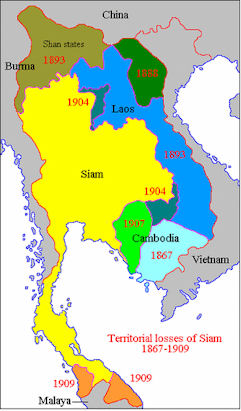

Zitierweise / cite as:
Payer, Alois <1944 - >: Chronik Thailands = กาลานุกรมสยามประเทศไทย. -- Chronik 1845 (Rama III). -- Fassung vom 2017-01-10. -- URL: http://www.payer.de/thailandchronik/chronik1845.htm
Erstmals publiziert: 2013-07-01
Überarbeitungen: 2017-01-10 [Ergänzungen] ; 2016-03-25 [Ergänzungen] ; 2015-08-22 [Ergänzungen] ; 2015-06-18 [Ergänzungen] ; 2015-05-18 [Ergänzungen] ; 2015-05-09 [Teilung des Kapitels] ; 2015-05-08 [Ergänzungen] ; 2015-04-22 [Ergänzungen] ; 2015-03-16 [Ergänzungen] ; 2015-03-04 [Ergänzungen] ; 2015-01-24 [Ergänzungen] ; 2014-12-15 [Ergänzungen] ; 2014-11-13 [Ergänzungen] ; 2014-11-04 [Ergänzungen] ; 2014-10-27 [Ergänzungen] ; 2014-09-21 [Ergänzungen] ; 2014-08-20 [Ergänzungen] ; 2014-03-26 [Ergänzungen] ; 2014-03-08 [Ergänzungen] ; 2014-02-26 [Ergänzungen] ; 2014-01-13 [Ergänzungen] ; 2013-12-20 [Ergänzungen] ; 2013-12-05 [Ergänzungen] ; 2013-11-25 [Ergänzungen] ; 2013-11-05 [Ergänzungen] ; 2013-10-11 [Ergänzungen] ; 2013-09-28 [Ergänzungen] ; 2013-09-23 [Ergänzungen] ; 2013-09-17 [Ergänzungen] ; 2013-09-02 [Ergänzungen] ; 2013-08-23 [Ergänzungen] ; 2013-08-21 [Ergänzungen] ; 2013-08-14 [Ergänzungen] ; 2013-08-11 [Ergänzungen] ; 2013-07-13 [Ergänzungen] ; 2013-07-10 [Ergänzungen] ; 2013-07-08 [Ergänzungen]
©opyright: Dieser Text steht der
Allgemeinheit zur Verfügung. Eine Verwertung in Publikationen, die über übliche
Zitate hinausgeht, bedarf der ausdrücklichen Genehmigung des Herausgebers.
Dieser Text ist Teil der Abteilung
Thailand von
Tüpfli's Global Village Library
ช้างตายทั้งตัวเอาใบบัวปิดไม่มิด
|
Gewidmet meiner lieben Frau Margarete Payer die seit unserem ersten Besuch in Thailand 1974 mit mir die Liebe zu den und die Sorge um die Bewohner Thailands teilt. |
|
Bei thailändischen Statistiken muss man mit allen Fehlerquellen rechnen, die in folgendem Werk beschrieben sind:
Die Statistikdiagramme geben also meistens eher qualitative als korrekte quantitative Beziehungen wieder.
|
1845 - 1854
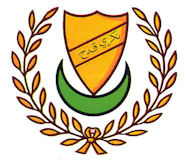
Sultan Zainal Rashid Al-Mu'adzam Shah I ist Sultan (سلطان) von Kedah (قدح)
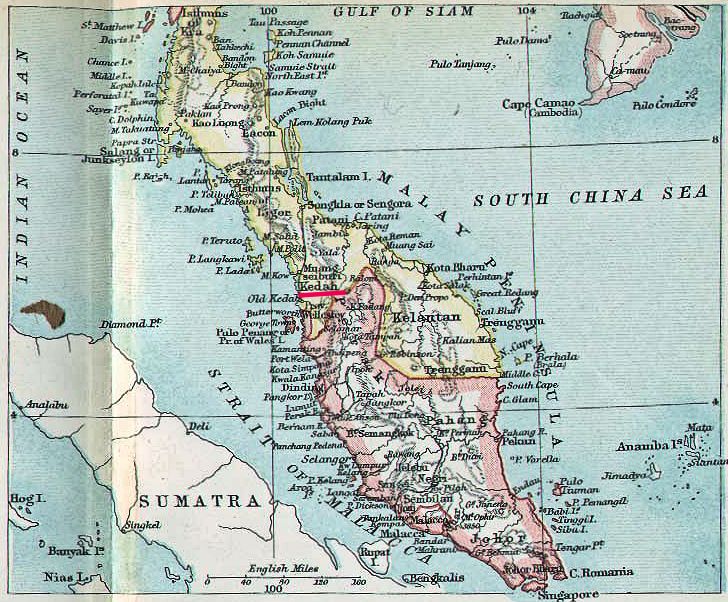
Abb.: Lage von Kedah (قدح)
[Bildquelle:
Constables Hand Atlas of India, 1893. -- Pl. 59]
1845/1846
Ein Steuerpächter bezahlt 6000 Baht für das Recht, in Phetchaburi (เพชรบุรี) die Steuer auf Palmzucker zu erheben. Für dasselbe Recht in Nonthaburi (นนทบุรี) werden 320 Baht bezahlt, in Suphanburi (สุพรรณบุรี) 160 Baht.
Abb.: Lage von Phetchaburi (เพชรบุรี), Nonthaburi (นนทบุรี) und Suphanburi (สุพรรณบุรี)
[Bildquelle: CIA. -- Public domain]
Abb.: Zapfen von Palmzuckersaft
[Bildquelle: VoDeTan2 Dericks-Tan / Wikipedia. -- GNU FDLicense]
Abb.: Eindampfen des Zuckersafts zu Palmzucker
[Bildquelle: VoDeTan2 Dericks-Tan / Wikipedia. -- GNU FDLicense]
Abb.: Fertiger Palmzucker
[Bildquelle: VoDeTan2 Dericks-Tan / Wikipedia. -- GNU FDLicense]
1845
Chamhun Rachamat (= Chaophraya Thipphakorawong Mahakosathibodi - เจ้าพระยาทิพากรวงศ์มหาโกษาธิบดี = Kham Bunnag - ขำ บุนนาค, 1813 - 1870) lässt in Südthailand zwischen Prachuap Khiri Khan (ประจวบคีรีขันธ์) und Surat Thani (สุราษฎร์ธานี) mehrere chinesische Opium-Banden-Führer und ihr Gefolge verhaften. Darunter sind
3 Kantonesen (廣府人)
3 Hainaner (海南人)
3 Hokkien (福建人)
1 Teochew (潮州人)
1 Hakka (客家)
1 Thai-Chinese der 2. Generation (lukchin / ลูกจีน)
Abb.: Lage von Prachuap Khiri Khan (ประจวบคีรีขันธ์) und Surat Thani (สุราษฎร์ธานี)
[Bildquelle: OpenStreetMap. -- Creative Commons Lizenz (Namensnennung, share alike)]
1845

Königin Victoria schenkt den Siamesen und Birmanen in Penang 2 Hektar Land, damit sie darauf Tempel bauen können. Die Siamesen bauen Wat Chaiyamangkalaram (วัดชัยมังคลาราม)
Abb.: Postkarte: Wat Chaiyamangkalaram (วัดชัยมังคลาราม), Penang, ca. 1900
Abb.: Lage von Penang
[Bildquelle: Scottish Geographical Magazine, 1886]
Abb.: Lage von Wat Chaiyamangkalaram (วัดชัยมังคลาราม)
[Bildquelle: OpenStreetMap. -- Creative Commons Lizenz (Namensnennung, share alike)]
1845 - 1859

Große Hungersnot in Irland (An Gorta Mór): durch Kartoffelfäule bewirkt; 1 Mio. Tote, 2 Mio. Auswanderer.
Abb.: Kartoffelfäule
[Bildquelle: USGov-USDA-ARS / Wikipedia. -- Public domain]
1845 - 1846

First Anglo-Sikh War zwischen der British East India Company und dem indischen Sikh-Reich
Abb.: Das Sikh Reich um ca. 1830
[Bildquelle: Khalid Mahmood / Wikipedia. -- GNU FDLicense]
1845
Revolte der chinesischen Triade (三合會) in Lang Suan (หลังสวน)
Abb.: Lage von Lang Suan (หลังสวน)
[Bildquelle: OpenStreetMap. -- Creative Commons Lizenz (Namensnennung, share alike)]
1845
Verschiedene Razzien gegen chinesische Geheimgesellschaften, die an der Küste Südthailands Piraterei und Schmuggel betreiben.
1845
สมเด็จพระมหาสมณเจ้า กรมพระปรมานุชิตชิโนรส [Paramanuchit Chinorot] <1790 - 1853>: ลิลิตตะเลงพ่าย ["Sieg über die Birmanen", im Lilit-Versmaß]
Abb.: Einbandtitel einer modernen Ausgabe
"Paramanuchit Chinorot (Thai: สมเด็จพระมหาสมณเจ้า กรมพระปรมานุชิตชิโนรส, RTGS: Somdet Phra Maha Samana Chao Kromma Phra Paramanuchit Chinorot, andere Schreibweisen: Paramanujit oder Paramanujita Jinorasa; * 1790 in Bangkok; † 9. Dezember 1853 in Bangkok) war ein thailändischer Mönch, Historiker und Poet. Er war von 1851 bis zu seinem Tod 1853 der Oberste Mönchspatriarch Thailands (พระสังฆราช). Paramanuchit wurde 1790 als 28. Kind von König Phra Phutthayotfa Chulalok (Rama I.) geboren. Er wuchs als Prinz Wasukri (พระองค์เจ้า วาสุกรี) im Palast auf. Im Alter von 12 Jahren trat er als Novize in den buddhistischen Orden ein, acht Jahre später wurde er im Wat Phra Chetuphon (Wat Pho - วัดโพธิ์) zum Mönch ordiniert. Er verblieb im Wat Pho bis zu seinem Lebensende. Seine geräumige Kuti (กุฏิ) ist heute ein Museum, das in jedem Jahr im Dezember zu seinem Todestag für die Öffentlichkeit geöffnet wird.
Zusätzlich zu Khmer und Pali war Paramanuchit in altertümlichem Siamesisch bewandert, so dass sein Neffe König Phra Nang Klao (Rama III.) ihn öfter bat, Bücher zu übersetzen oder sie zu schreiben.[1] Der Prinz war ein überaus produktiver Poet, wie man noch heute an zahlreichen Inschriften überall im Wat Pho sehen kann. Diese Inschriften wurden im Jahr 2010 für das Weltdokumentenerbe der UNESCO vorgeschlagen.[2]
Das bekannteste Werk des Prinzen ist wohl das Lilit Taleng Phai (ลิลิตตะเลงพ่าย - „Die besiegten Birmanen”)[3], welches den Kampf der Siamesen gegen die Birmanen beschreibt. Im Mittelpunkt steht dabei natürlich der entscheidende Zweikampf zwischen König Naresuan (, 1555 - 1605) und dem birmanischen Kronprinzen, ein großer Teil der Dichtung ist jedoch Schilderungen der Umwelt gewidmet:
„Den Marsch der thailändischen Truppen durch waldiges Gelände benutzt der Dichter, um Fauna und Flora ausgiebig zu schildern, nachdem er schon vordem die Gliederung, die Uniformierung und die Bewaffnung der Truppen bis ins letzte Detail beschrieben hat.“
– Wenk, Die Literatur der ThaiParamanuchit Chinorot wird heute in Thailand als bedeutender Dichter sowohl weltlicher als auch religiöser Schriften angesehen, seine Bücher werden an thailändischen Schulen und Universitäten gelesen."
[Quelle: http://de.wikipedia.org/wiki/Paramanuchit_Chinorot. -- Zugriff am 2015-05-15]
"This poem [ลิลิตตะเลงพ่าย], a lilit, was written by a son of Rama I and uncle of Rama IV, in whose reign the poem was written over a period of sixteen years. It concerns the war with Burma during the reign of King Naresuan [สมเด็จพระนเรศวรมหาราช] (A.D. 1590-1605). Three sections of the work have been included here. The first is the soliloquy, a nirat [นิราศ], of the Burmese Uparat [อุปราช / အိမ်ရှေ့မင်း] as he is on his way toward Ayuthia [อยุธยา] after having been ordered into battle by his father. The second section shifts the scene to Naresuan in Ayuthia who is considering battle with the Cambodians when he receives word that the Burmese army is approaching. After conferring with his officials it is decided to move out and meet the Burmese rather than wait in the city. The third section includes preparations for leaving, the march, and the hand to hand combat between Naresuan and the Uparat in which the latter is killed. (The final part of the story, not included here, concerns King Naresuan's justice. His army had not been able to keep up with him and he therefore had determined to punish his officers, but the Supreme Patriarch intervened on their behalf and it was finally decided that they should be sent into battle again to give them another chance.)" [Quelle: Jones, Robert B. <1920 - > ; Mendiones, Ruchira Chinnapongse [รุจิรา ชินณพงศ์ เมนเดียนส์] <1918 - >: Introduction to Thai literature = ประมวลวรรณกรรมไทยยางเรื่อง. -- Ithca, NY : Cornell Univ. Southeast Asia Program, 1970. -- 563 S. ; 25 cm. -- Copyright bis 1980-09-15, danach public domain. -- S. 401f.]
1845/1849
สุนทรภู่ [Sunthon Phu] <1786 - 1855>: นิราศอิเหนา [Nirat (Reisegedicht) Inao = Cerita Panji]
Abb.: Einbandtitel einer modernen Ausgabe
1845-07

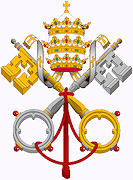
Der französische Missionar Jean Baptiste François Louis Larnaudie (1819 - 1899) kommt nach Siam.
1845-07/08
 *
*
John L. O'Sullivan prägt im United States Magazine and Democratic Review den Begriff Manifest Destiny für die USA.
Abb.: American Progress / von John Gast (1842 - ?), 1872
[Bildquelle: Wikipedia. -- Public domain]
"Manifest Destiny was the widely held belief that American settlers were destined to expand across the continent. Historians have for the most part agreed that there are three basic themes to Manifest Destiny:
1. The special virtues of the American people and their institutions;
2. America's mission to redeem and remake the world in the image of America;
3. A divine destiny under God's direction to accomplish this wonderful task.[1]Historian Frederick Merk (1887 - 1977) said this concept was born out of "A sense of mission to redeem the Old World by high example [...] generated by the potentialities of a new earth for building a new heaven".[2]
Historians have emphasized that "Manifest Destiny" was a contested concept--many prominent Americans (such as Abraham Lincoln, Ulysses Grant and most Whigs and Republicans) rejected it. Historian Daniel Walker Howe (1937 - ) wrote, "Nevertheless American imperialism did not represent an American consensus; it provoked bitter dissent within the national polity."[3] Nationwide, probably most Democrats supported Manifest Destiny and most Whigs strongly opposed it.
Manifest Destiny provided the rhetorical tone for the largest acquisition of U.S. territory. It was used by Democrats in the 1840s to justify the war with Mexico and it was also used to divide half of Oregon with Great Britain. But Manifest Destiny always limped along because of its internal limitations and the issue of slavery, said Merk. It never became a national priority. By 1843 John Quincy Adams (1767 - 1848), originally a major supporter, had changed his mind and repudiated Manifest Destiny because it meant the expansion of slavery in Texas.[4]
Merk concluded:
- From the outset Manifest Destiny—vast in program, in its sense of continentalism—was slight in support. It lacked national, sectional, or party following commensurate with its magnitude. The reason was it did not reflect the national spirit. The thesis that it embodied nationalism, found in much historical writing, is backed by little real supporting evidence.[5]
The belief in an American mission to promote and defend democracy throughout the world, as expounded by Thomas Jefferson (1743 - 1826) and his "Empire of Liberty", Abraham Lincoln (1809 - 1865), Woodrow Wilson (1856 - 1924), Douglas MacArthur (1880 - 1964, regarding the American rebuilding of Japan), and George W. Bush (1946 - ), continues to have an influence on American political ideology."
[Quelle: http://en.wikipedia.org/wiki/Manifest_destiny. -- Zugriff am 2013-11-05]
1845-07-04
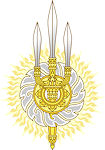


US-Missionar Jesse Caswell (1809-1848) an das American Board of Commisioners for Foreign Mission:
Abb.: Jesse Caswell
[Bildquelle: Wikimedia. -- Public domain]
"On the 14th of last month I received an invitation from Chau Fa [เจ้าฟ้า = Vajirañāṇo Bhikkhu - วชิรญาณภิกขุ, 1804 - 1868, dem künftigen Rama IV. ], the priest, to spend a little time in teaching English in his wat [= Wat Bowonniwet Vihara Rajavaravihara - วัดบวรนิเวศวิหารราชวรวิหาร], to himself and several priests and others connected with him. As an inducement for me to comply with his invitation, he offered me the occupancy, rent free, of a neat convenient room adjoining the wat ground, to be used - as it was his own proposal - for preaching and distributing books. He offered also to fit up the room in any way I might choose. For a long time I had been desiring to find a room in a place less public than the tract house, and yet public enough to secure a good number of calls, where I might preach the gospel. But I could find no place of the kind. When Chau Fa’s invitation came, wholly unsolicited as it was, it seemed so already the finger of God that I could not hesitate respecting the path of duty. I commenced leaching the first of this month, and expect in a few days to begin to occupy my room for preaching. I have a class of 16 or 18 young men, partly priests and partly body servants of Chau Fa. In spend about three-fourths of an hour with the class and then give a few minutes to Chau Fa himself in explaining any difficulties he may have met with. I propose to go on Mondays, Tuesdays, Thursday and Fridays, and spend the whole forenoon in teaching and receiving visits at my room. My hopes in respect to the results of this new attempt at teaching English are not at all sanguine and I should not feel at liberty to engage in it, except in consideration of the room allowed me for preaching. The fact that this is the first station we have ever had inside the walls of the city is perhaps of some little interest and also that the place is granted by one so high in rank. It is a mile and a half from our mission compound, and some what more than that distance from the ‘tract house’, situated on one of the principal streets of the city." [Zitiert in: Bradley, William Lee: Prince Mongkut and Jesse Caswell. -- In: Journal of the Siam Society. -- 54,1 (1966). -- S. 35]
1845-07-15
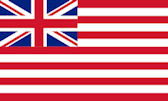
Erstausgabe der The Straits times and Singapore journal of commerce. Die Straits Times ist die älteste auch 2013 noch existierende Zeitung Südostasiens.
Abb.: Titelblatt der Erstausgabe
1845-07-26



US-Missionar Jesse Caswell (1809-1848) an das American Board of Commisioners for Foreign Mission:
"I took possession of my room [siehe oben 1845-07-04] on the 14th inst. Thus far this place seems to me more favorable to the quiet preaching of the gospel than the tract house. Going and returning from my work furnishes me with three miles of walk which is very favorable to my health. My class in English has increased to about twenty five. It is not often however that more than half of them are present at the same time. Chau Fa [เจ้าฟ้า = Vajirañāṇo Bhikkhu - วชิรญาณภิกขุ, 1804 - 1868, dem künftigen Rama IV. ] himself is much more persevering than I expected him to be. Formerly his brother the prince commenced taking lessons in English, but gave a specimen of his natural fickleness in not taking the second lesson. The priest never misses a lesson and plies me with so many questions that I commonly have to tear myself away from him. I frequently have some of the lay members at ray room to listen to my conversation. It is well understood by them that I do not intend to spend any of my time at my room in any other way than in preaching the gospel. Soon after Chau Fa began his lessons in English, a Roman Catholic priest advised him not to study English, as it would spoil his pronunciation of latin. He says the R. C. [Roman Catholic] priests praise his pronunciation of latin very much. He studied it many years since, and made, I should think, commendable progress But he well understands, that if he would become acquainted with modern sciences, he must seek some other medium than that afforded by the latin language. Chau Fa has 48 Ceylonese residing in his wat, 32 of them priests. All but two of them came in a ship which the king sent to Ceylon last year, and which returned a few months since." [Zitiert in: Bradley, William Lee: Prince Mongkut and Jesse Caswell. -- In: Journal of the Siam Society. -- 54,1 (1966). -- S. 35f.]
1845-10-01



US-Missionar Jesse Caswell (1809-1848) an das American Board of Commisioners for Foreign Mission:
"At the time of my last quarterly report I had just entered on the labor of teaching at the wat [= Wat Bowonniwet Vihara Rajavaravihara - วัดบวรนิเวศวิหารราชวรวิหาร] of Chau Fa [เจ้าฟ้า = Vajirañāṇo Bhikkhu - วชิรญาณภิกขุ, 1804 - 1868, dem künftigen Rama IV. ] the priest. My impressions respecting the place he gave me for a preaching stand were favorable from the first, but I had so often had my hopes of doing good by teaching English dashed, that my expectations in regard to that department of my labors were not at all sanguine. After the experiment of three months, I can now say that the place considered with reference to the great business of preaching is even more favorable than I had anticipated. I seldom have fewer than six hearers and very frequently from ten to fifteen, and most of these stay and listen quietly until I dismiss them. During the three months I have labored there I do not recall more than two persons who have been at all noisy or disputatious. Almost without a solitary exception, those who turn aside to hear me are perfectly respectful. This I believe to be an entirely new thing for Bangkok There are several things which conspire to produce this result, but that which stands at the head is the fact that Chau Fa is my disciple in learning the English language and himself treats me with respect. This procures for me the respect of all the priests of his wat and of all the neighborhood. Excepting the one or two cases I mentioned above, I do not recollect of hearing one disrespectful word, or witnessing an act to disrespect towards me either in the wat, or in the vicinity for a great distance around. After trying to preach the gospel for four years in the midst of strife and contention, you may well suppose that I should feel some emotions of gratitude, when, unexpectedly
and without the least planning of my own, I have been, by the hand of God as I must believe, set down in such a field. I commonly have one or two members of my class in English to hear me at my preaching exercise...With regard to my English class in the wat, I can say that I have been agreeably disappointed. About ten young men have persevered till the present time. Once or twice they were discouraged and it seemed to me that I should lose them; but by calling in the aid of Chau Fa I succeeded in rousing them to effort and I have now hope that they may be held to study till they shall have conquered the difficulties which arise early in the path of our studying the English, and till they have acquired a taste for the language. Chau Fa himself is indefatigable in his efforts to acquire the English. He has missed but one lesson during the whole three months that I have taught. I devote from 9 to 11 A. M. to teaching; the first hour to the young men, the last to Chau Fa.
“But," you will ask. "suppose you succeed according to your mind in this effort to teach English, where is your hope of accomplishing the ends of missionary labor? " I answer first, negatively, it is not in the fuel that a knowledge of English is imparted, nor that discipline of the mind is secured, nor is it in the amount of religious instruction which they (my scholars) get through the English language. That which first moved me to engage in this work was the fact that I thus secured a good preaching place. This fact, in present circumstances, I think is sufficient to justify my devoting two hours four times a week to such labor as this. But I gain, as you already see. more than a good preaching place - an influence over the minds of those who hear me that, so far as we can see, could not be secured in any other way. This I did not forsee when I accepted C. F's invitation. It is something which comes in to confirm the decision already made up on other grounds. Having such evidence of being on the path of duty it is often comforting and cheering to dwell on some other considerations which seem to be among the “all things working together for good. " [Römerbrief 8,28] One of these is the influence I obtain in the four other wats which, either in whole or in part, sympathize with C. F. Another is the facilities I have for extending my acquaintance with the Siamese language. The hour that I spend with C. F. is often times much more profitable in this respect than the same lime would be, spent with my teacher. But there is another consideration which I sometimes think, may, in the mind of God, weigh more than all those mentioned, both primary and secondary. The school of which the C. F. is the head the liberal school - is probably destined to increase in numbers and influence. It is just that in the priesthood that Chau Fa the prince, and Pra Nai Wai and those with them, are among the people. Chau Fa, the priest, is really a learned man and has great influence over those of his school. This class, in and out of the priesthood, embraces those who, so far as we can see, would be most likely to embrace Christianity. At the same time, from the peculiar posture of their minds, they are more likely perhaps to run off into rank infidelity than the old school. How important then that we should have free and easy access to him who emphatically stands at the head of such a party.
Chau Fa himself is full of scepticism, and yet it is not that settled scepticism which is found among a certain class in Christian communities. He seems to have a strong love of truth. (Of course, not the peculiar truths of revelation. ) He loves to have solid ground pointed out to him on which he may stand. At least, so I think. We have frequent conversations on topics connected with the question of the divine origin of the Christian Scriptures. These conversations are always introduced by himself, and have never yet, in one instance, run into dispute. At one time he alluded to the apparent inconsistency between the acknowledged fact that the earth is spherical and that part of the account of the temptation of Jesus in which he is represented as having all the kingdoms of the earth shown to him in a moment of time. At another time he could not see how the suffering such men as Gaudama and Mohammud to rise and delude so large a part of mankind, could be reconciled with the existence of an Almighty and Benevolent Creator. These are specimens of the difficulties which he proposes. You can easily judge the importance of clearing up these difficulties at the fountainhead.
I also enjoy special advantages for becoming acquainted with the true state of the Siamese mind and with the progress which is made. This is to be learned more from accidental remarks, than from anything direct. For instance, a few days since. C. F. related the substance of a conversation between him and several others at the Praklang’s [พระคลัง]. One of them asked in a playful way, who of the company had joined the missionaries, (meaning by the question, who were believers in the spherical form of the earth. ) Chau Fa says, "as for me, I joined them fifteen years ago, before they came here. ” Said Pra Nai Wai, " I joined them thirteen years ago. ” Pra Nai Si, a brother of Pra Nai Wai, said he became a disciple only one year ago, that he never believed till the missionaries published their Astronomy. Upon this, Paya Si Bipat a brother of the Praklangs declared with impatience that he was no believer at all - he never had and never would. Chau Fa says that correct views in Astronomy already prevail extensively among the young...
P.S. I should have said a word... of the preference which C. F. manifests for the bible in his reading of English. I have put several books into his hands, and among them a neat bible. Hitherto he has confined his reading mostly to Mitchel’s Geography, Parker’s Grammar, and the Bible. He has a mind to be interested in grammar and he is so; but he chooses to spend most of his time in reading the bible."
[Zitiert in: Bradley, William Lee: Prince Mongkut and Jesse Caswell. -- In: Journal of the Siam Society. -- 54,1 (1966). -- S. 36 - 28]
1845-12-10

Der Schotte Robert William Thomson (1822 - 1873) erhält das Patent auf den vulkanisierten Gummireifen für Fahrräder. Er findet Abnehmer für seine Idee.
Abb.: Thomson-Reifen
[Bildquelle: http://www.talktalk.co.uk/technology/galleries/view/technology/greatscots/browse/364176. -- Zugriff am 2013-09-27. -- Fair use]
Abb.: Öffentliche Fahrräder, Bangkok, 2008
[Bildquelle: Nitzan Brumer. -- http://www.flickr.com/photos/27399600@N00/2946642958. -- Zugriff am 2013-09-27. -- Creative Commons Lizenz (Namensnennung, keine kommerzielle Nutzung, share alike)]
1845-02
Anzeige im Bangkok Recorder:
"Quinine that used to be sold at Hunter Building is now sold at my house. Since I realise many people in Bangkok have got malaria, I want to help them. I therefore offer the quinine for sale. Its owner gives me a price and I charge the price its owner gives without any profit. Now there are 40 bottles of quinine for sale. Btl7 for each bottle and get a discount if you buy all. Every bottle is the same, good quinine. Do not be curious about its quality. Rev. Dan Beach Bradley, M.D."
Abb.: Chinin-Pulver
[Bildquelle: Wellcome Images. -- Creative Commons Lizenz (Namensnennung, keine kommerzielle Nutzung)]
Abb.: "Chinarinde" des Baums Cinchona sp., Grundstoff für Chinin
[Bildquelle: Efraim Lev and Zohar Amar, Wellcome Images. -- Creative Commons Lizenz (Namensnennung, keine kommerzielle Nutzung)]
1845-03-04 - 1849-03-04

James Knox Polk (1795 - 1849) ist Präsident der USA.
Abb.: Wahlplakat 1844
[Bildquelle: Wikimedia. -- Public domain]
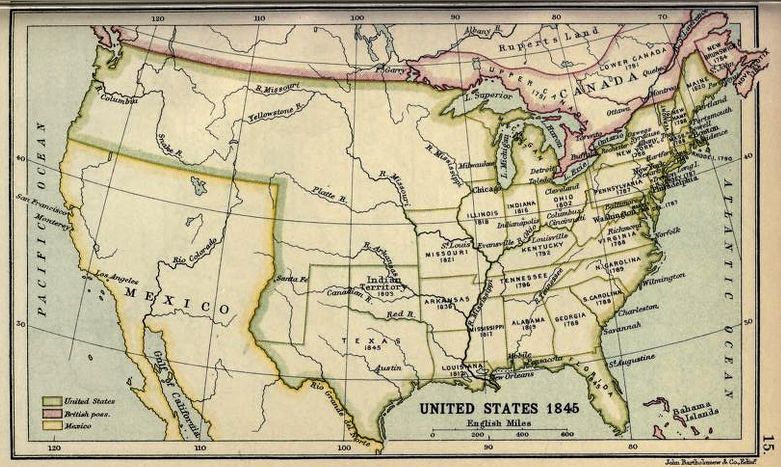
Abb.: USA 1845
[Bildquelle: Bartholomew, J. G. <1860 - 1920>: A literary & historical atlas
of America. -- London, o. J.]
1845-10-02
Leipzig: Gründung der Deutschen Morgenländischen Gesellschaft
Abb.: ®Logo
"Unsere Arbeit auf einen Blick
- Zielsetzung
- Vertiefung und Verbreitung der Kenntnis über den Orient - Afrika und Asien
- Veröffentlichungen
- Zeitschrift der Deutschen Morgenländischen Gesellschaft (ZDMG) seit 1847
- Abhandlungen für die Kunde des Morgenlandes seit 1857
- Bibliothek
- Die Bibliothek der DMG in Halle (Saale) verfügt über einen Bestand von knapp 67,000 Titeln (Stand 2012).
- Deutsche Orientalistentage
- Repräsentative Veranstaltung der deutschen Orientalistik, die im Abstand von drei bis fünf Jahren abgehalten wird."
[Quelle: http://www.dmg-web.de/. -- Zugriff am 2015-08-22]
1845-11-01

"... the desire of gain has become so strong, that a Railway to the Moon would have found speculators ..." Alfred Crowquill [= Alfred Henry Forrester] <1804 - 1872>: Railway mania. -- In Illustrated London news. -- 1845-11-01]
ausführlich: http://www.payer.de/thailandchronik/ressourcen.htm